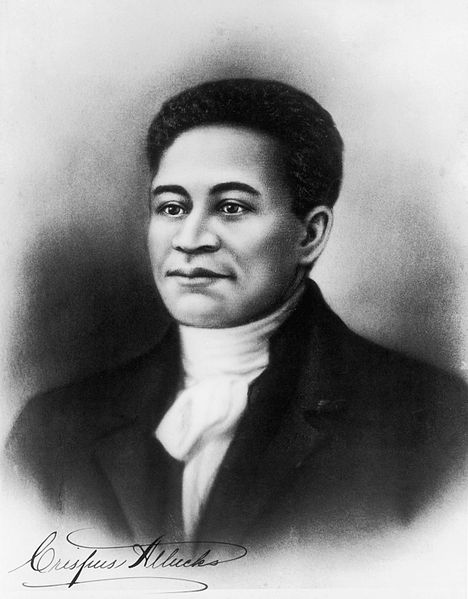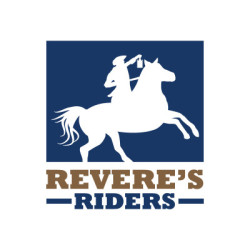On This Day: Crispus Attucks

On this day, March 5th 1770, Crispus Attucks is killed during the Boston Massacre.
The first to defy, The first to die.
On March 5, 1770, British soldiers Captain-Lieutenant John Goldfinch and Private Hugh White stood guard outside the Boston Custom House on King Street in Boston (known as State Street today).
Edward Garrick, a wigmaker’s apprentice, accused Goldfinch of failing to pay a bill due his master. Goldfinch, having settled the bill, ignored the apprentice who then began to berate him and poke him in the chest. Goldfinch eventually challenged the apprentice and struck him in the head with his musket.
This led to others taking up the argument with Goldfinch and an ever larger and more boisterous crowd began to assemble. Crispus Attucks joined the throng (around 50 strong at this time) and became one of it’s leaders.
The throng surrounded Goldfinch and White, threw objects at them and challenged them to fire their weapons. White eventually sent runners to the nearby British barracks with a request for assistance. Captain Thomas Preston along with a non-commissioned officer and several men were dispatched to assist Goldfinch and White.
When the British soldiers arrived, they loaded their muskets and formed a defensive semi-circle around Goldfinch and White. Preston ordered the crowd (now numbering in the hundreds) to disperse but to no avail.
The crowd continued to yell at the British soldiers and pelt them with snowballs and other objects. Eventually, a British private was struck by an object and dropped his musket. When he picket it up, he discharged it into the crowd. A ragged volley ensued hitting eleven men in the crowd.
Three colonists (Crispus Attucks, Samuel Gray and James Caldwell) were instantly killed. Attucks took two bullets to the chest and was believed to be the first to die. Two other men (Samuel Maverick and Patrick Carr) died of their wounds in the ensuing days.
Attucks’ body was carried to Fanueil Hall where it laid in state until March 8 when he was buried along with the other victims in Boston’s Granary Burying Ground.
The next day, the acting Governor Thomas Hutchinson had the British soldiers arrested and charged with murder. A town meeting was called in Fanueil Hall and the colonists called for all British soldiers quartered in Boston to leave. At first Hutchinson balked at removing the soldiers but when pressed by the colonists finally agreed.
Ironically, John Adams (2nd President of the United States) would successfully defend most of the British soldiers at trial on November 27, 1770. Six soldiers were acquitted while two others were found guilty based on evidence they had fired directly into the crowd.
The Boston Massacre is considered one of the most important events that turned colonial sentiment against King George III and British Parliamentary authority.

You must be logged in to post a comment.